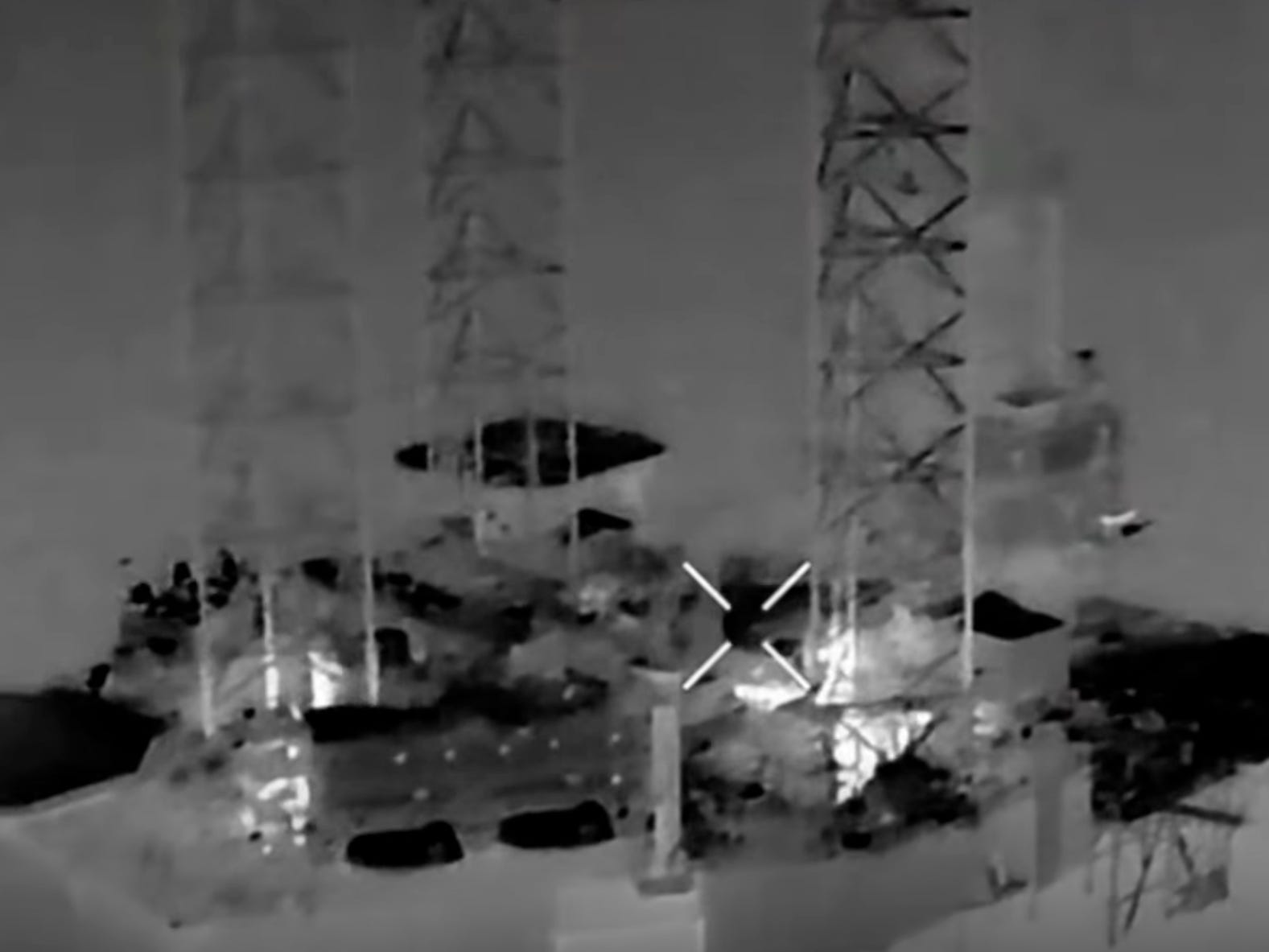UPDATE: Ukraine’s military has just revealed a groundbreaking new tactic in drone warfare, launching first-person-view (FPV) drones from boats in the open sea. This unprecedented operation, confirmed by the Main Intelligence Directorate (GUR), marks a significant evolution in maritime combat strategies.
On September 11, 2024, Ukrainian forces executed a drone attack on the Petro Godovanets gas production platform in the Black Sea, according to a statement posted on the GUR’s Telegram channel. The footage, released on Tuesday, shows at least three FPV drones being launched from boats, targeting the gas platform during a nighttime operation.
“This operation successfully suppressed enemy fire on the Petro Godovanets,” GUR stated. The attack involved the Raven Group, a specialized unit within Ukraine’s special forces. While the exact damage inflicted remains unclear, GUR reported that Russian forces suffered personnel and equipment losses during the assault.
The surveillance footage, which is currently circulating online, captures the dramatic moments of the drone strikes, showcasing flashes and explosions against the backdrop of the night sky. This method of drone deployment is a notable shift from previous maritime drone warfare, which primarily utilized surface vessels or munitions launched from land.
Historically, FPV drones are remote-controlled quadcopters that require real-time control from operators, differing significantly from traditional unmanned surface vehicles designed to carry explosives. The tactical shift to launching FPV drones from boats represents a new frontier in naval engagements, emphasizing speed and adaptability.
Previously, similar drone operations at sea have been observed, such as those conducted by Yemen’s Houthi rebels, but these typically involved launching from inland locations rather than directly from boats. This latest development not only demonstrates Ukraine’s innovative military tactics but also poses new challenges for maritime security in the region.
As this story develops, analysts will be closely monitoring how this new strategy impacts ongoing conflicts and maritime operations in the Black Sea and beyond. The use of FPV drones from boats could change the dynamics of naval warfare, raising questions about future confrontations and the effectiveness of traditional naval defenses.
Stay tuned for further updates on this evolving story. The implications of this attack could resonate far beyond the Black Sea, influencing military tactics globally.








































































